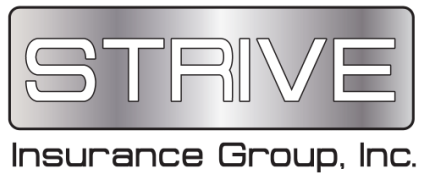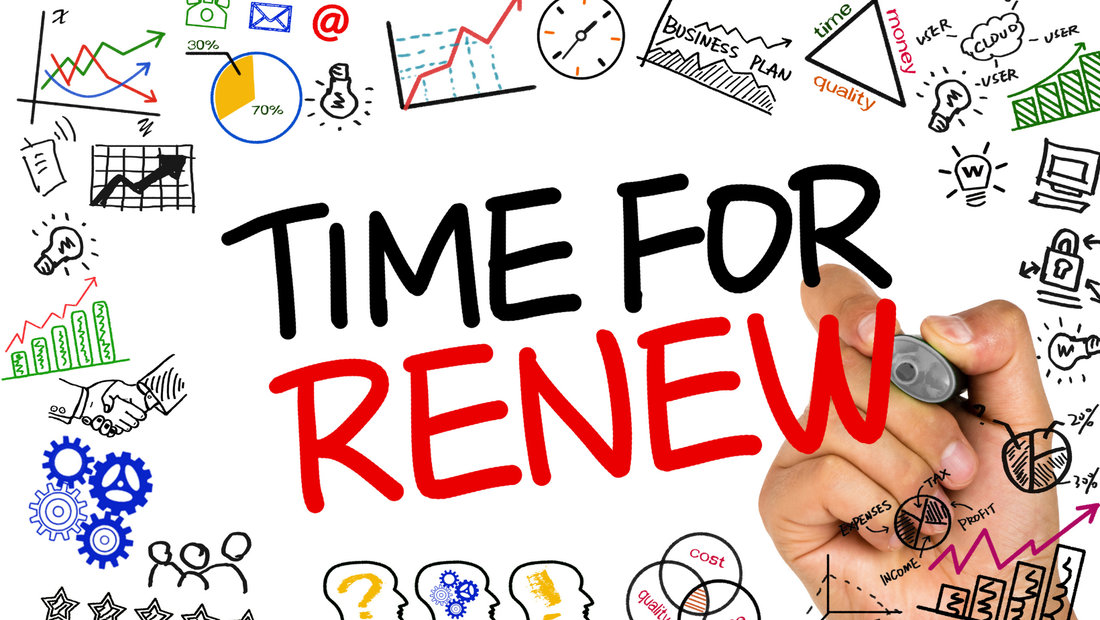|
A Comprehensive Risk Guide
As an insurance agent specializing in life sciences firms, I understand the unique risks and challenges that these companies face. From product liability to data breaches, the stakes are high, and effective risk management is crucial for business survival. In this blog, we'll explore risk management strategies tailored to life sciences firms, including insurance as a key component, to help you protect your business and drive growth. Identify and Assess Risks Conduct a thorough risk assessment to identify potential threats, including:
Ready to safeguard your life sciences firm? Contact me to schedule a risk management consultation. Let's work together to ensure your business thrives. [ As a property manager, you work hard to maintain properties and ensure tenants are satisfied. However, unexpected events can occur, and insurance claims may be necessary. Here are three examples of property manager insurance claims and how they can help:
Example 1: Liability Claim - Slip and Fall
Need help navigating property manager insurance claims? Contact me to discuss your unique needs and ensure you're adequately covered. As a medical professional, you understand the importance of protecting your practice from unforeseen risks. Insurance is a crucial aspect of risk management, and finding the right coverage can be overwhelming. In this article, we'll guide you through the process of getting the best insurance for your medical office.
Assess Your Risks
Ready to safeguard your medical office? Contact me at to schedule a comprehensive insurance review. Let's work together to ensure your practice thrives. As a Texas biotech firm, you're at the forefront of innovation, developing cutting-edge products and technologies that transform lives. However, this pioneering work comes with unique risks. To safeguard your business, intellectual property, and employees, you need tailored insurance coverage. In this blog, we'll explore three essential insurance coverages biotech firms can't do without:
1. Product Liability Insurance Biotech firms develop and manufacture complex products, such as pharmaceuticals, medical devices, and biologics. Product Liability insurance protects your business in case these products cause harm or injury to patients, users, or consumers. This coverage is crucial, as even a single product recall or lawsuit can be financially devastating. 2. Intellectual Property Insurance Biotech firms invest heavily in research and development, generating valuable intellectual property (IP) such as patents, trademarks, and trade secrets. Intellectual Property insurance safeguards your business against IP infringement, theft, or misuse. This coverage helps you defend your IP rights, recoup lost revenue, and even pursue legal action against infringers. 3. Directors and Officers (D&O) Liability Insurance Biotech firms are led by boards of directors and officers who make strategic decisions that impact the company's success. Directors and Officers (D&O) Liability insurance protects these individuals from personal liability in case of lawsuits, regulatory actions, or other claims. This coverage is vital, as D&O claims can arise from allegations of wrongful acts, breach of duty, or negligence. Biotech firms face unique risks and challenges, but with the right insurance coverage, you can mitigate these risks and focus on driving innovation and growth. Don't leave your business exposed – consider investing in Product Liability, Intellectual Property, and D&O Liability insurance to safeguard your company's future. Protect your biotech firm today! Medical device companies play a critical role in improving patient outcomes and saving lives. However, they also face a unique set of risks that can impact their reputation, finances, and ability to deliver life-saving products. In this article, we'll explore the top risks facing medical device companies and the most effective ways to manage them.
Top Risks:
Business interruption coverage is crucial to commercial property insurance, providing financial support when unexpected events disrupt business operations. This coverage is especially important for property managers and medical office buildings, as it helps ensure continuity of operations and maintenance of revenue streams. In this article, we'll delve into the details of business interruption coverage, its benefits, and how it applies to these buildings.
What is Business Interruption Coverage? Business interruption coverage, or business income coverage, is an extension of commercial property insurance. It reimburses lost business income and expenses when a covered event, such as a fire, natural disaster, or equipment failure, forces a business to suspend operations. Key Benefits for Property Managers and Medical Office Buildings
As a biotech firm, you're at the forefront of innovation, developing cutting-edge products and technologies that transform lives. However, this pioneering work comes with unique risks. To safeguard your business, intellectual property, and employees, you need tailored insurance coverage. In this blog, we'll explore three essential insurance coverages biotech firms can't do without:
1. Product Liability Insurance Biotech firms develop and manufacture complex products, such as pharmaceuticals, medical devices, and biologics. Product Liability insurance protects your business in case these products cause harm or injury to patients, users, or consumers. This coverage is crucial, as even a single product recall or lawsuit can be financially devastating. 2. Intellectual Property Insurance Biotech firms invest heavily in research and development, generating valuable intellectual property (IP) such as patents, trademarks, and trade secrets. Intellectual Property insurance safeguards your business against IP infringement, theft, or misuse. This coverage helps you defend your IP rights, recoup lost revenue, and even pursue legal action against infringers. 3. Directors and Officers (D&O) Liability Insurance Biotech firms are led by boards of directors and officers who make strategic decisions that impact the company's success. Directors and Officers (D&O) Liability insurance protects these individuals from personal liability in case of lawsuits, regulatory actions, or other claims. This coverage is vital, as D&O claims can arise from allegations of wrongful acts, breach of duty, or negligence. Biotech firms face unique risks and challenges, but with the right insurance coverage, you can mitigate these risks and focus on driving innovation and growth. Don't leave your business exposed – consider investing in Product Liability, Intellectual Property, and D&O Liability insurance to safeguard your company's future. Protect your biotech firm today! As a medical office, your priority is providing quality care to your patients. However, unexpected events like natural disasters, equipment failures, or pandemics can disrupt your operations, putting your patients and your business at risk. Business Interruption Insurance (BII) can help mitigate the financial impact of such events, ensuring your medical office remains stable and continues to provide essential services.
What is Business Interruption Insurance? BII is a type of insurance that covers the financial loss suffered by a business when it is unable to operate due to unforeseen events. This insurance helps replace lost income, pays for ongoing expenses, and ensures your medical office can recover quickly. Why Do Medical Offices Need BII?
A hurricane damages your medical office, forcing you to close for repairs. A cyberattack compromises your patient data, requiring costly repairs and security upgrades. A pandemic forces you to reduce staff and operations, resulting in lost income. Business Interruption Insurance is essential for medical offices to ensure continuity of patient care, financial stability, and reputation. By investing in BII, you can protect your medical office from the unexpected, ensuring you can continue to provide quality care and maintain your reputation. Don't wait until it's too late – consider BII today and safeguard your medical office's future. As a landlord, your rental properties are a significant source of income. But what happens when unexpected events like natural disasters, fires, or tenant damage disrupt your rental operations? Without proper insurance coverage, you may face financial losses and even risk losing your investment.
We'll explore the importance of Business Interruption and Extra Expense insurance for landlords, and how these policies can help mitigate financial losses and ensure continuous rental income. Business Interruption Insurance: A Safety Net for Landlords Business Interruption insurance (also known as Business Income insurance) helps replace lost rental income when your property becomes uninhabitable due to a covered event. This policy provides financial support during the repair or rebuilding process, ensuring you can continue to meet your financial obligations, such as:
Extra Expense Insurance: Covering Unforeseen Costs Extra Expense insurance helps cover unexpected expenses incurred while your property is being repaired or rebuilt. This policy can help pay for:
Real-Life Scenarios: Why These Policies Matter Fire damage: A fire destroys a portion of your rental property, leaving it uninhabitable. Business Interruption insurance helps replace lost rental income while repairs are made, while Extra Expense insurance covers temporary housing for displaced tenants. Hurricane damage: A hurricane causes significant damage to your property, requiring extensive repairs. Business Interruption insurance ensures you can continue paying your mortgage and other expenses, while Extra Expense insurance helps cover emergency repairs and debris removal. As a landlord, protecting your rental income is crucial. Business Interruption and Extra Expense insurance policies provide a financial safety net, ensuring you can weather unexpected events and keep your rental operations running smoothly. Don't leave your rental income to chance – consider investing in these essential policies to safeguard your investment and ensure a steady stream of income. Protect your rental properties today! In the innovative world of biotechnology, firms are at the forefront of scientific breakthroughs, from pharmaceuticals to genetic research. However, with great innovation comes great risk, particularly in terms of liability. Professional liability coverage, also known as errors and omissions (E&O) insurance, is crucial for biotech firms. Here’s why:
1. Protection Against Legal Action Biotech firms are involved in complex and often groundbreaking research and development. The outcomes can sometimes lead to unexpected side effects or failures that might result in harm or financial loss to a client or third party. Such scenarios can lead to costly lawsuits. Professional liability insurance helps cover the legal fees and settlements, which can be exorbitant, especially in high-stakes fields like biotechnology. 2. Maintaining Credibility and Trust For a biotech firm, maintaining credibility is crucial. A single lawsuit can tarnish a company's reputation, affecting its ability to secure funding or partnerships. Professional liability insurance not only covers financial losses but also helps in managing public relations crises, allowing a company to handle legal battles discreetly and efficiently. 3. Compliance with Industry Standards In many parts of the world, regulatory bodies require biotech firms to have professional liability insurance as part of their licensing criteria. This is not just a bureaucratic tick-box but a safeguard that ensures the firm can cover damages if something goes wrong, thus protecting consumers and business partners. 4. Encourages Risk Taking and Innovation Knowing that there is a safety net in place, biotech firms can pursue innovative research and development with less fear of financial ruin from potential legal issues. This encouragement of risk-taking is essential in a field that relies on constant innovation to push the boundaries of science. 5. Financial Stability Litigation can be incredibly costly. Without appropriate insurance, a biotech firm might face financial instability or even bankruptcy in the event of a significant claim. Professional liability insurance provides a buffer that can help ensure the company survives financially after facing a claim. 6. Attracting Investment Investors are more likely to invest in companies that have managed their risks well. Professional liability insurance is often seen by investors as a sign of prudent management and operational maturity, making the firm a more attractive investment opportunity. 7. Global Market Accessibility Biotech firms often work in multiple countries, each with its own legal and regulatory requirements. Professional liability insurance can be tailored to meet these diverse requirements, facilitating smoother international operations and expansion. The biotech sector's inherent risks demand robust risk management strategies, with professional liability coverage being a cornerstone. Such coverage not only protects against potentially devastating financial and reputational damage but also supports the firm’s operational and strategic objectives. In the volatile yet exciting world of biotech, professional liability insurance isn’t just an option—it’s an essential part of ensuring a firm’s longevity and success. |
Archives
June 2024
Categories
All
|










 RSS Feed
RSS Feed
7/25/2024
0 Comments